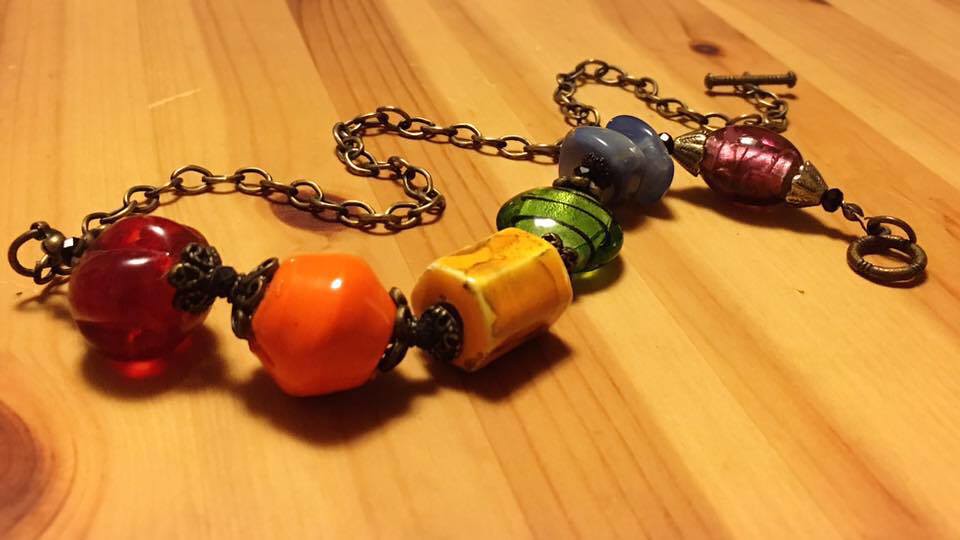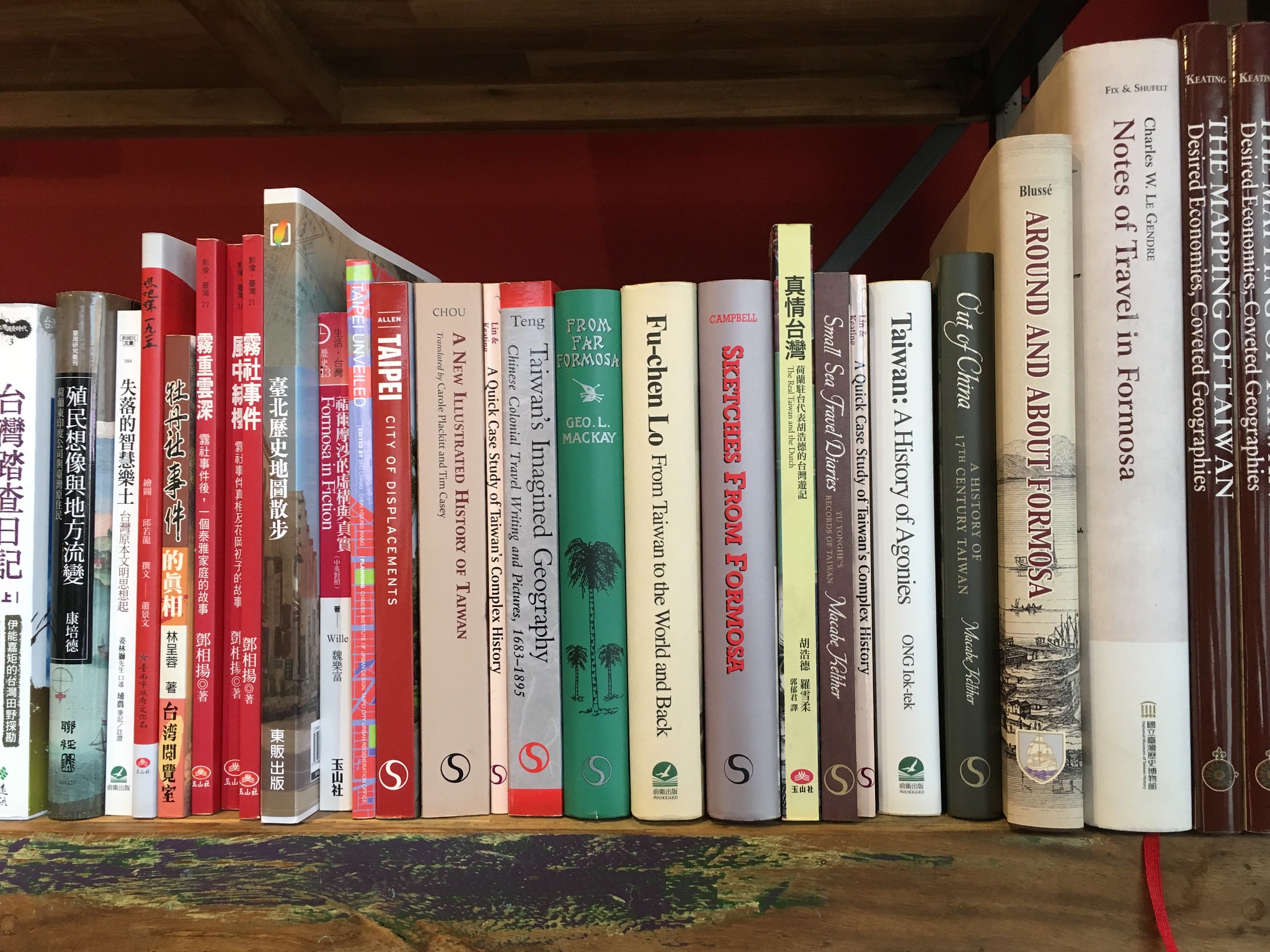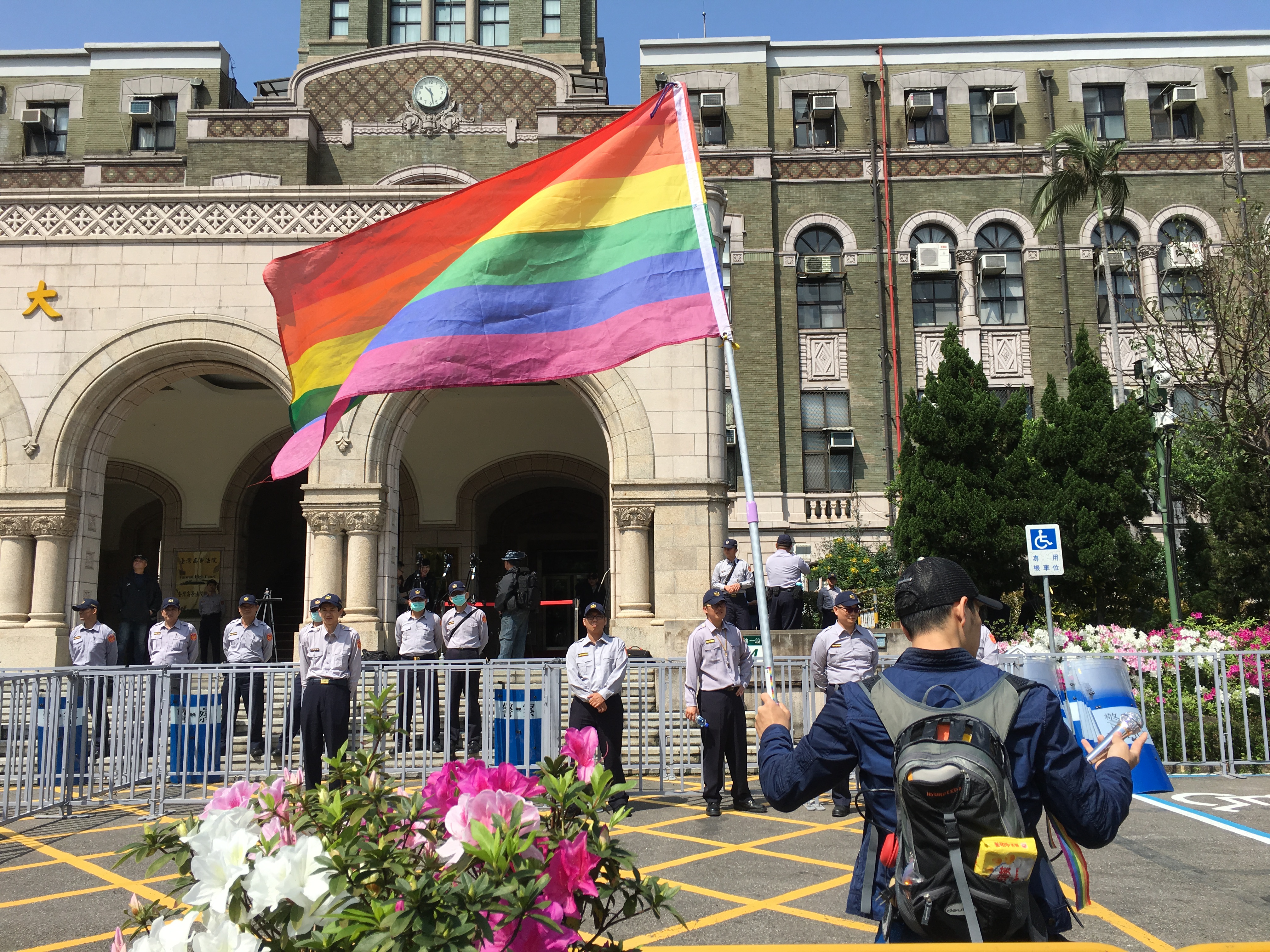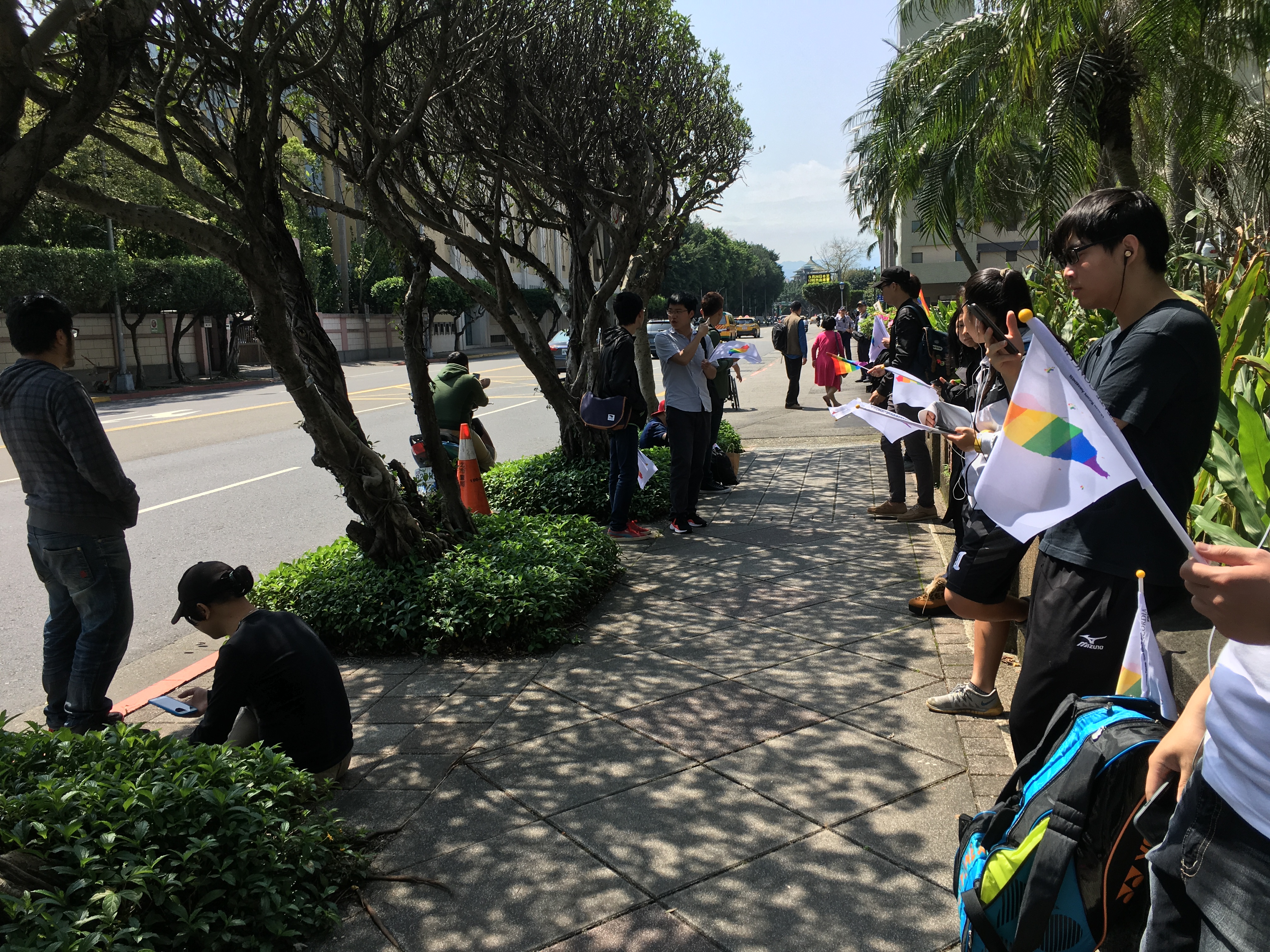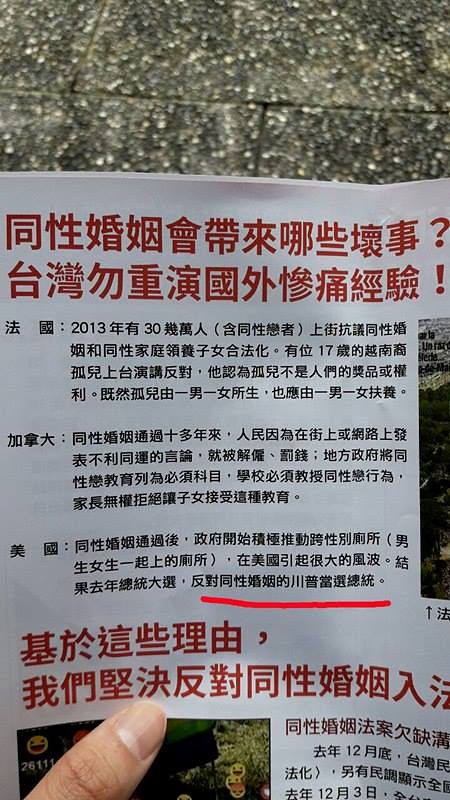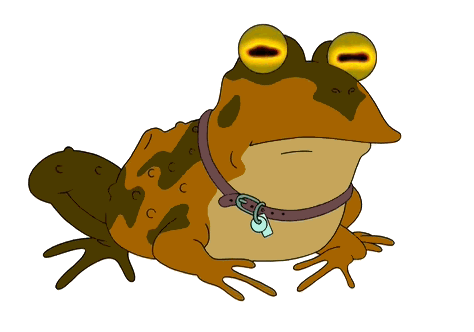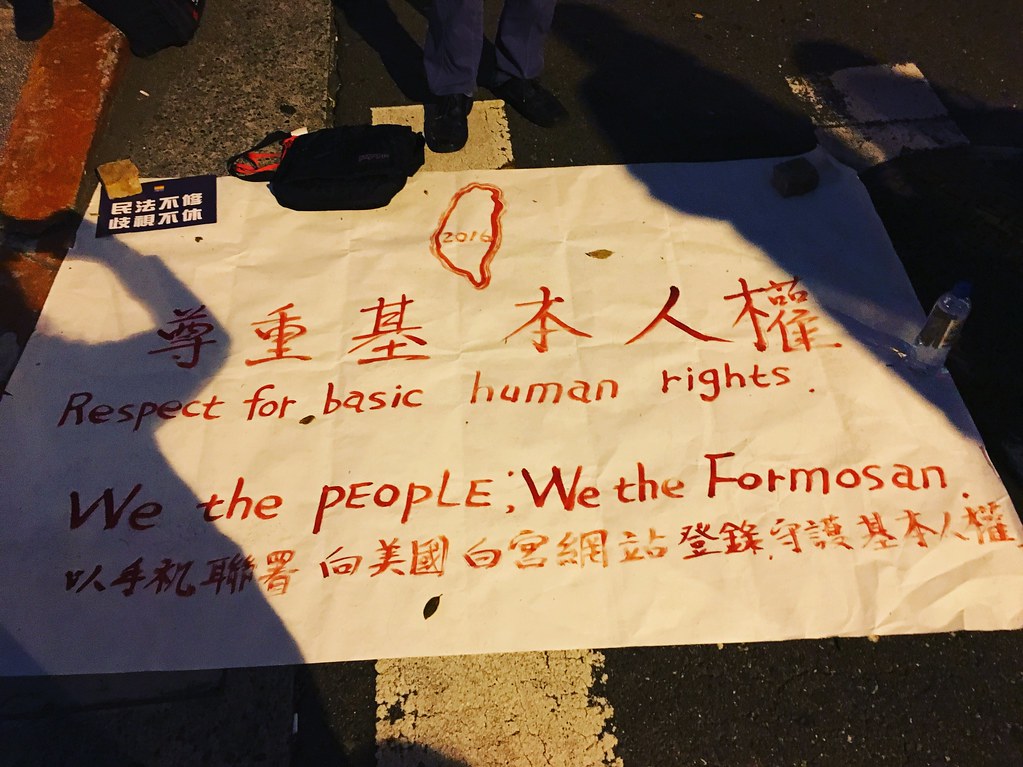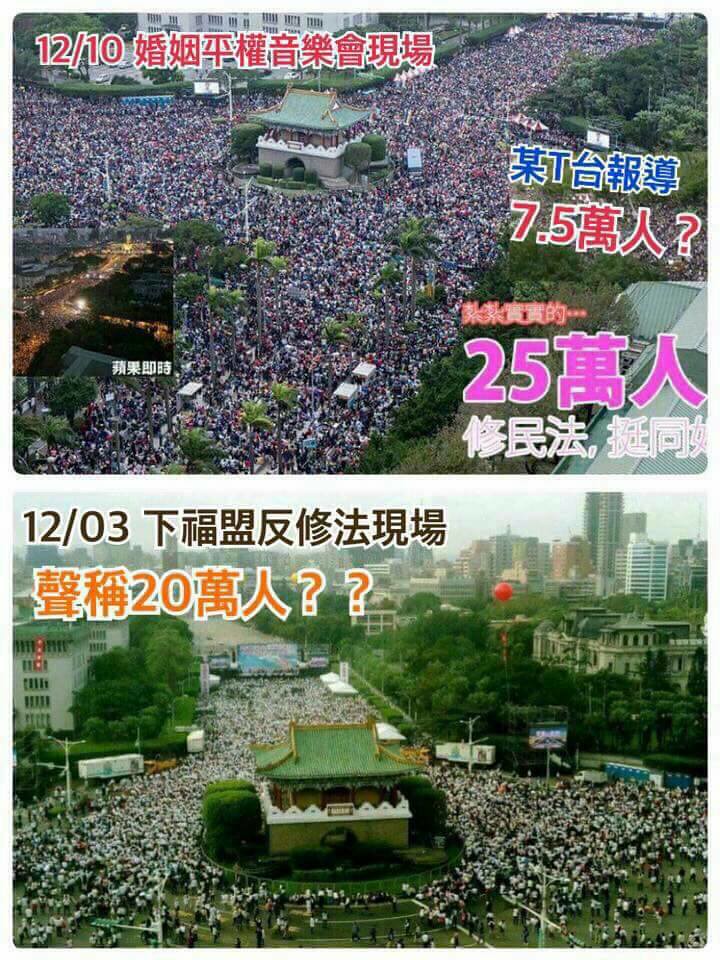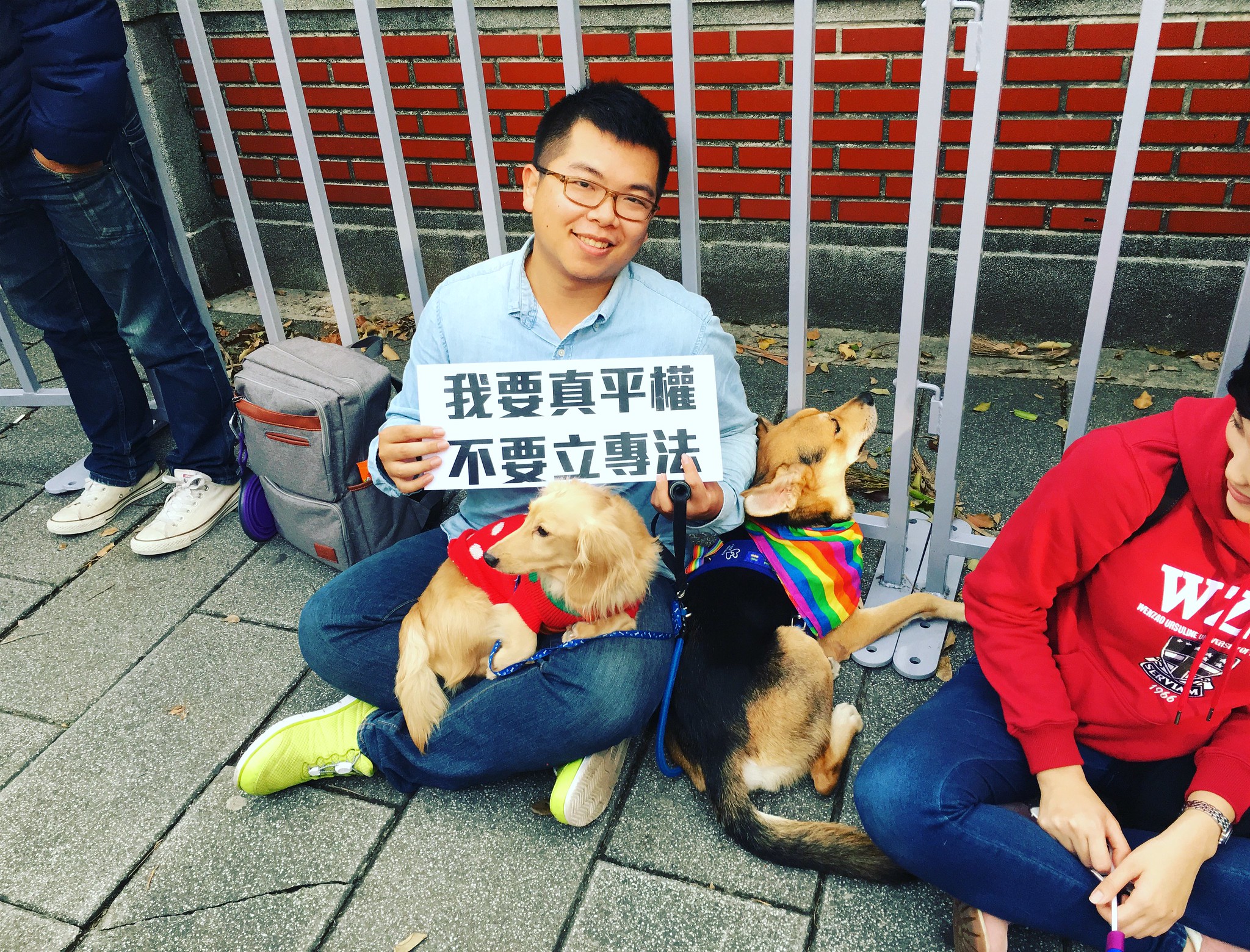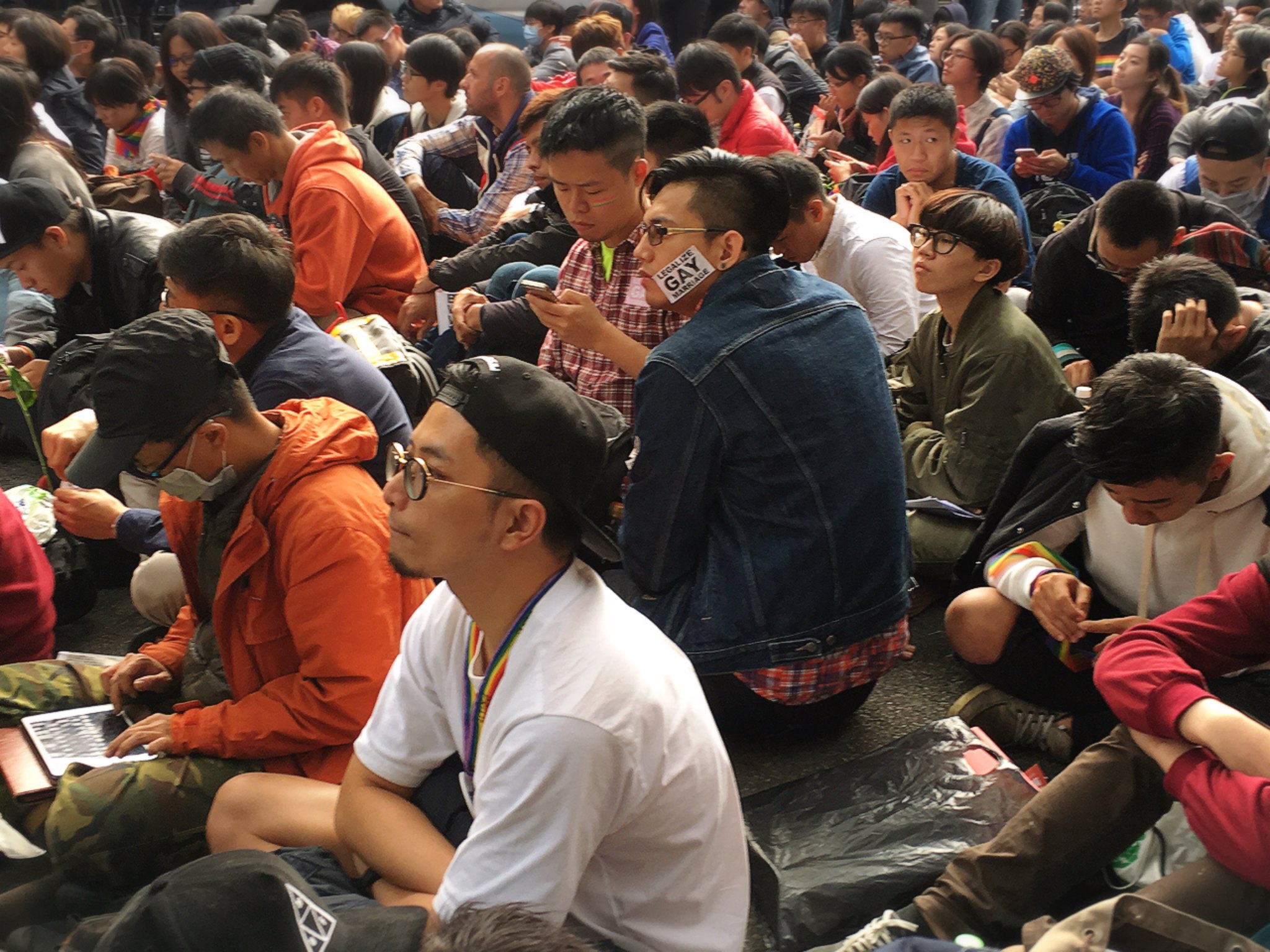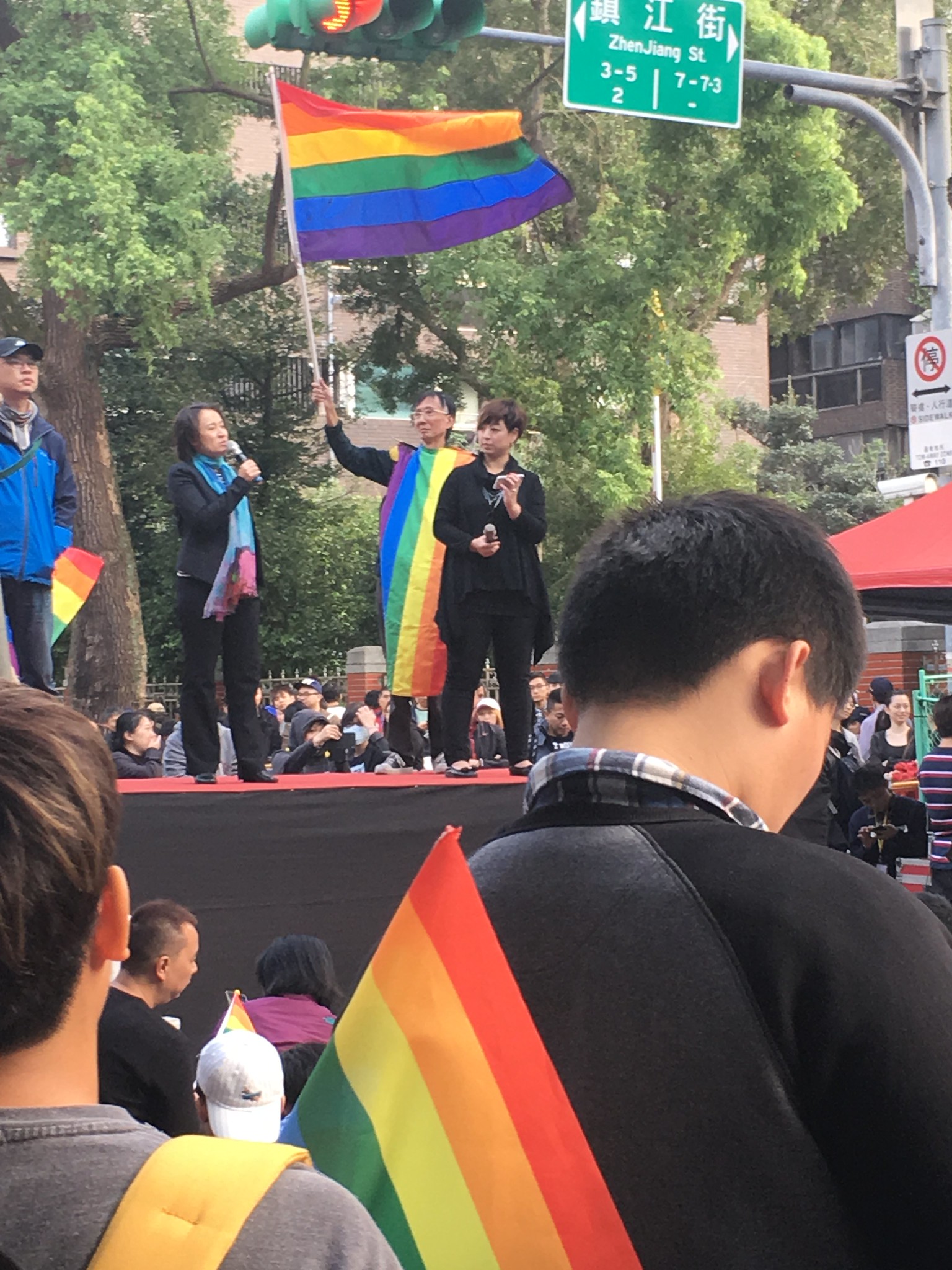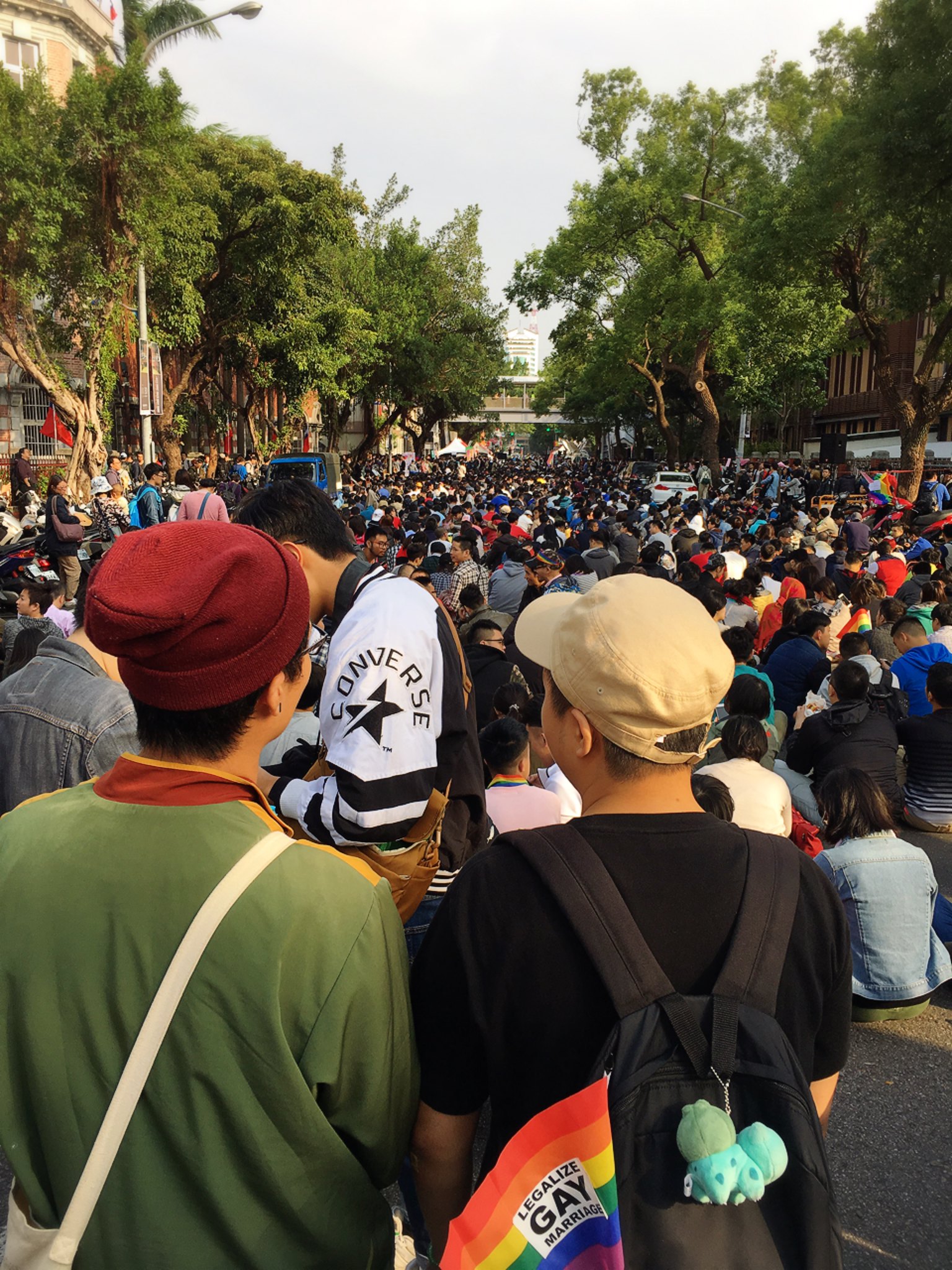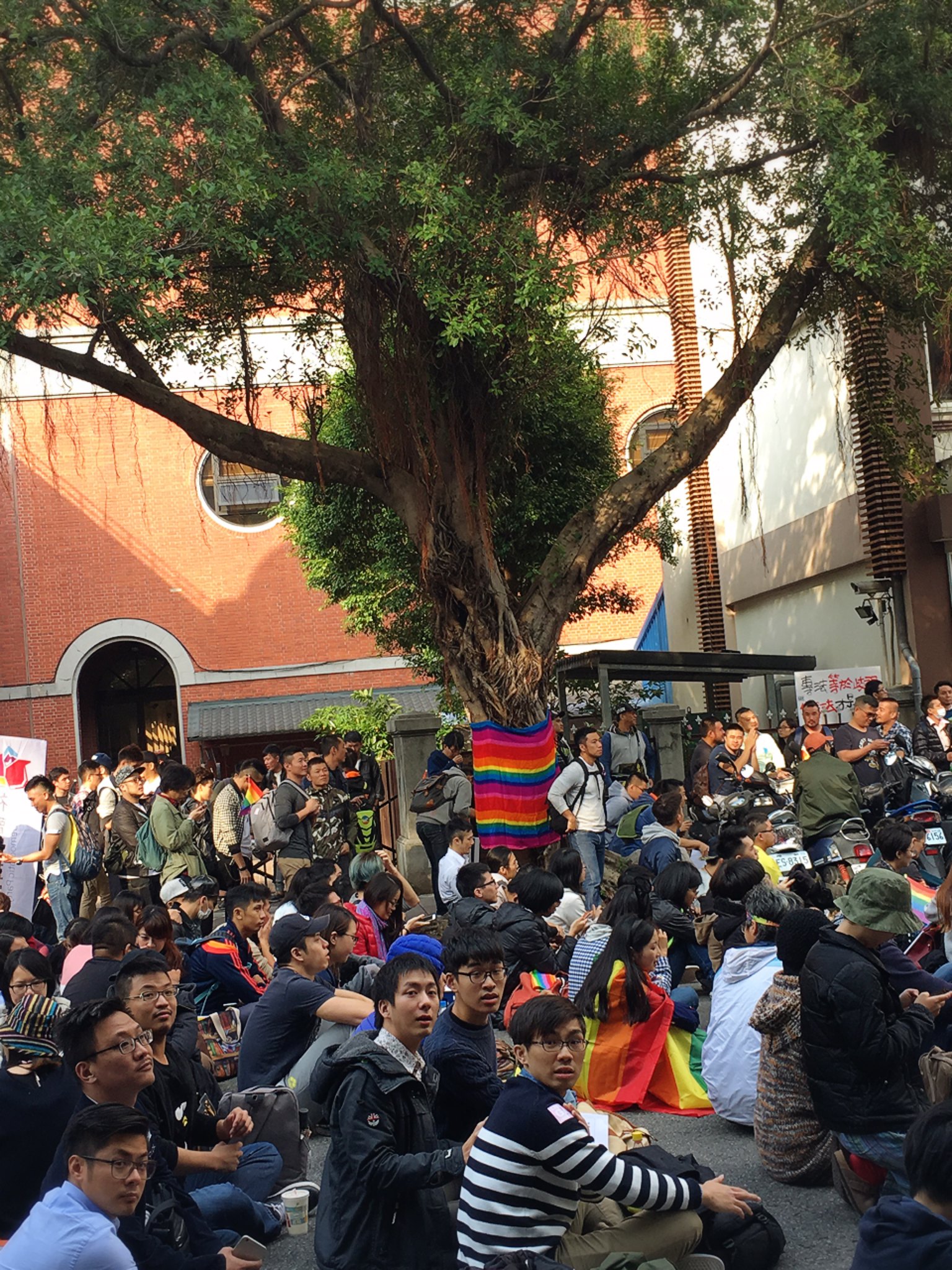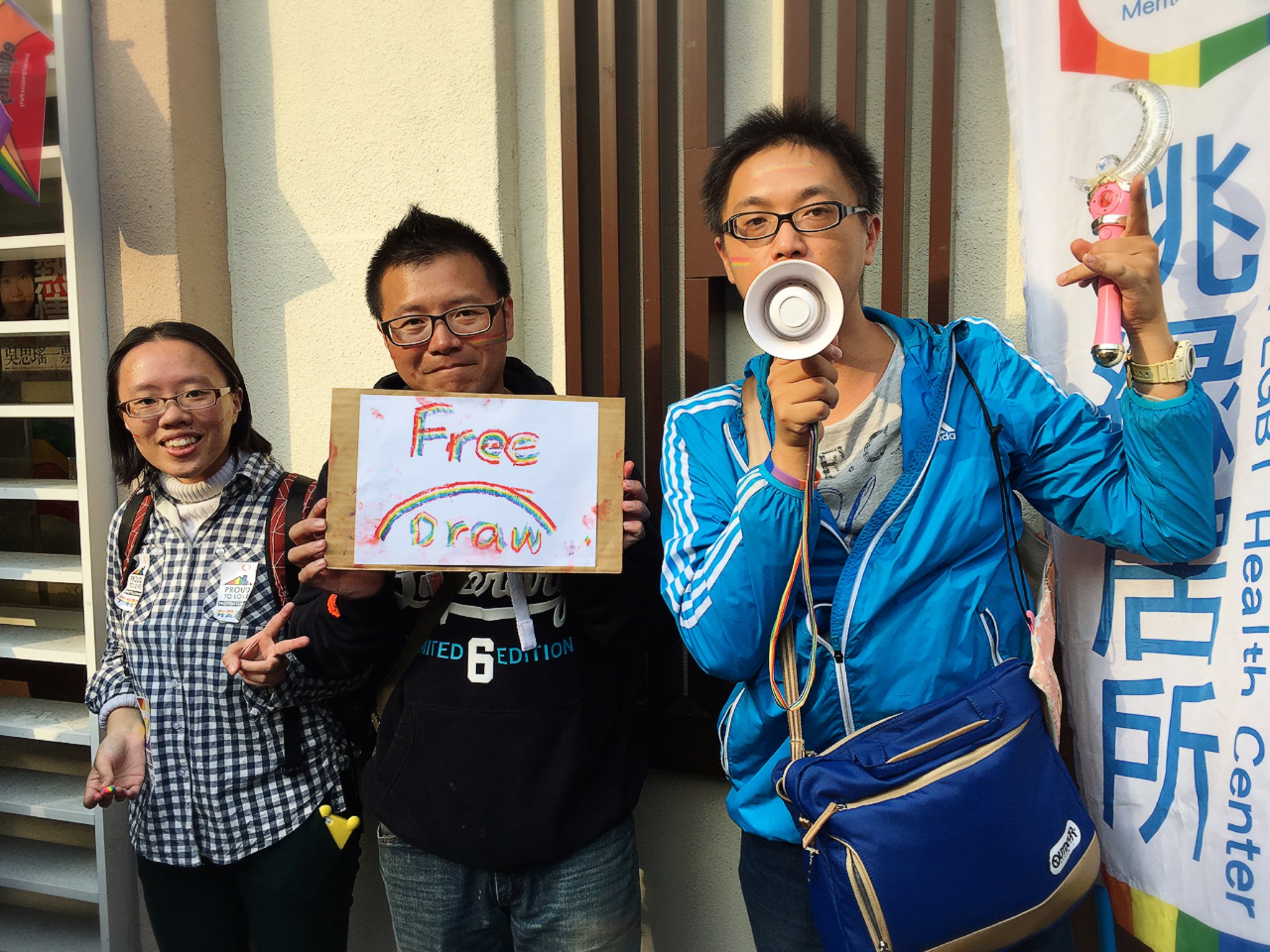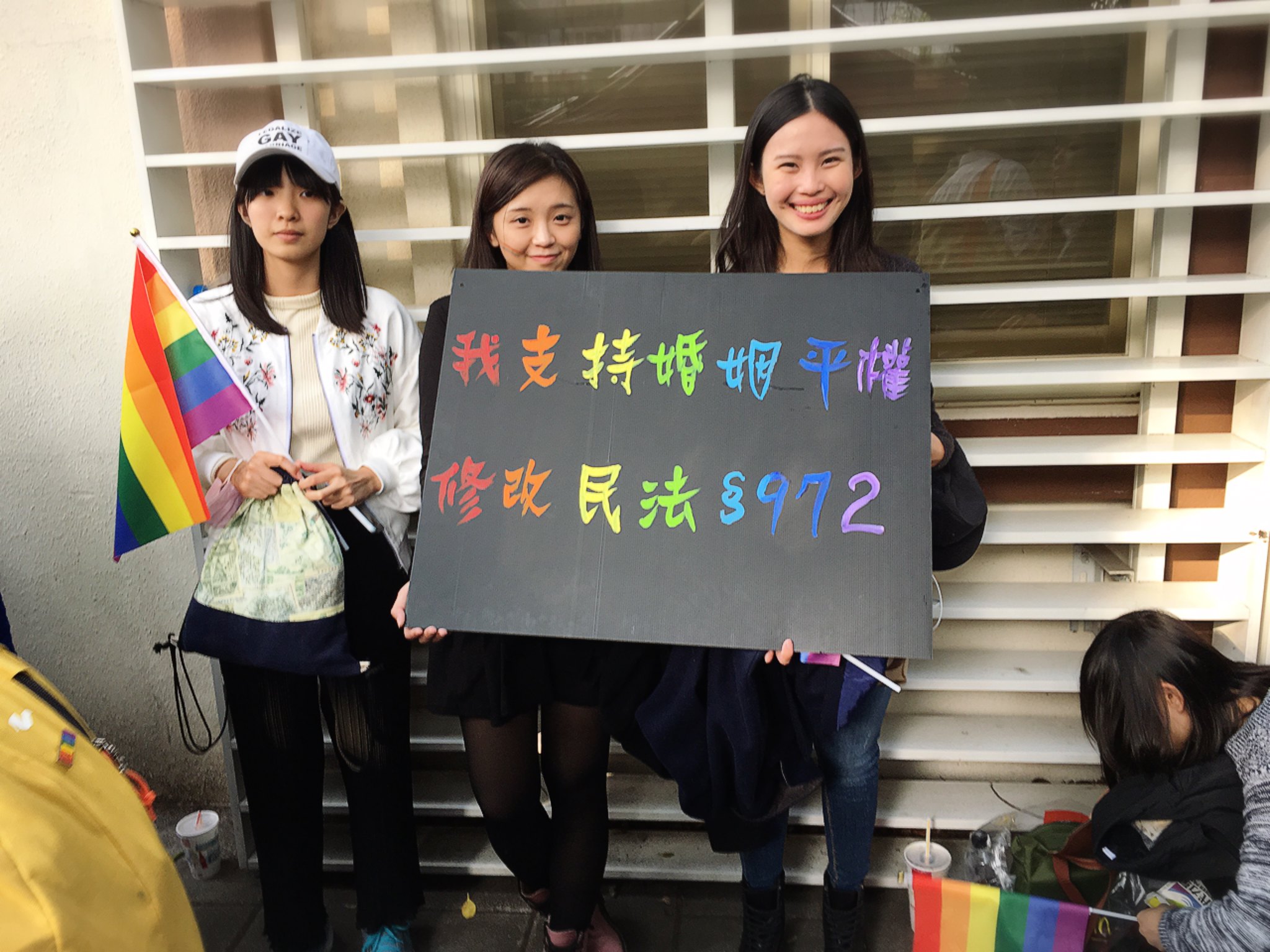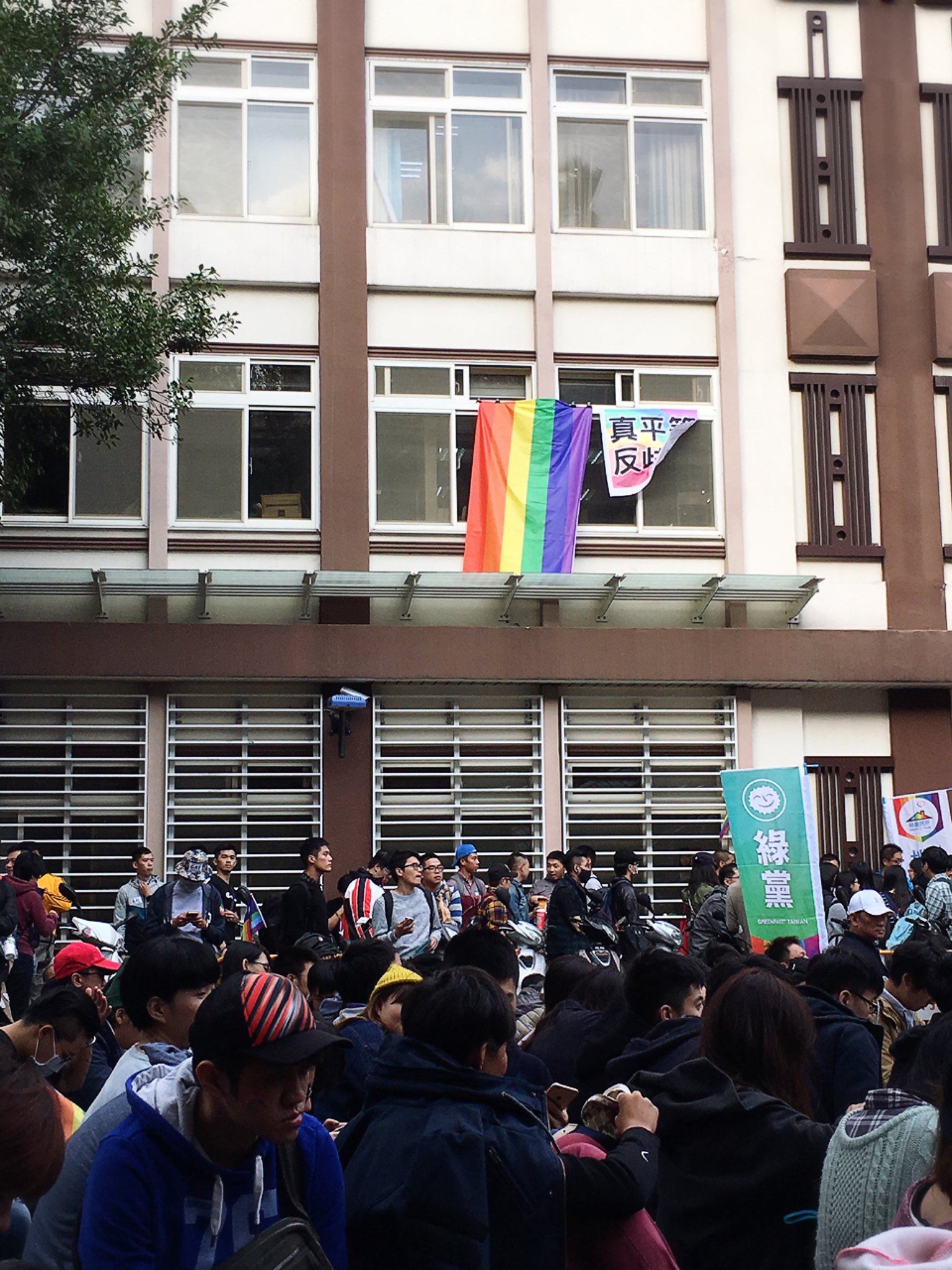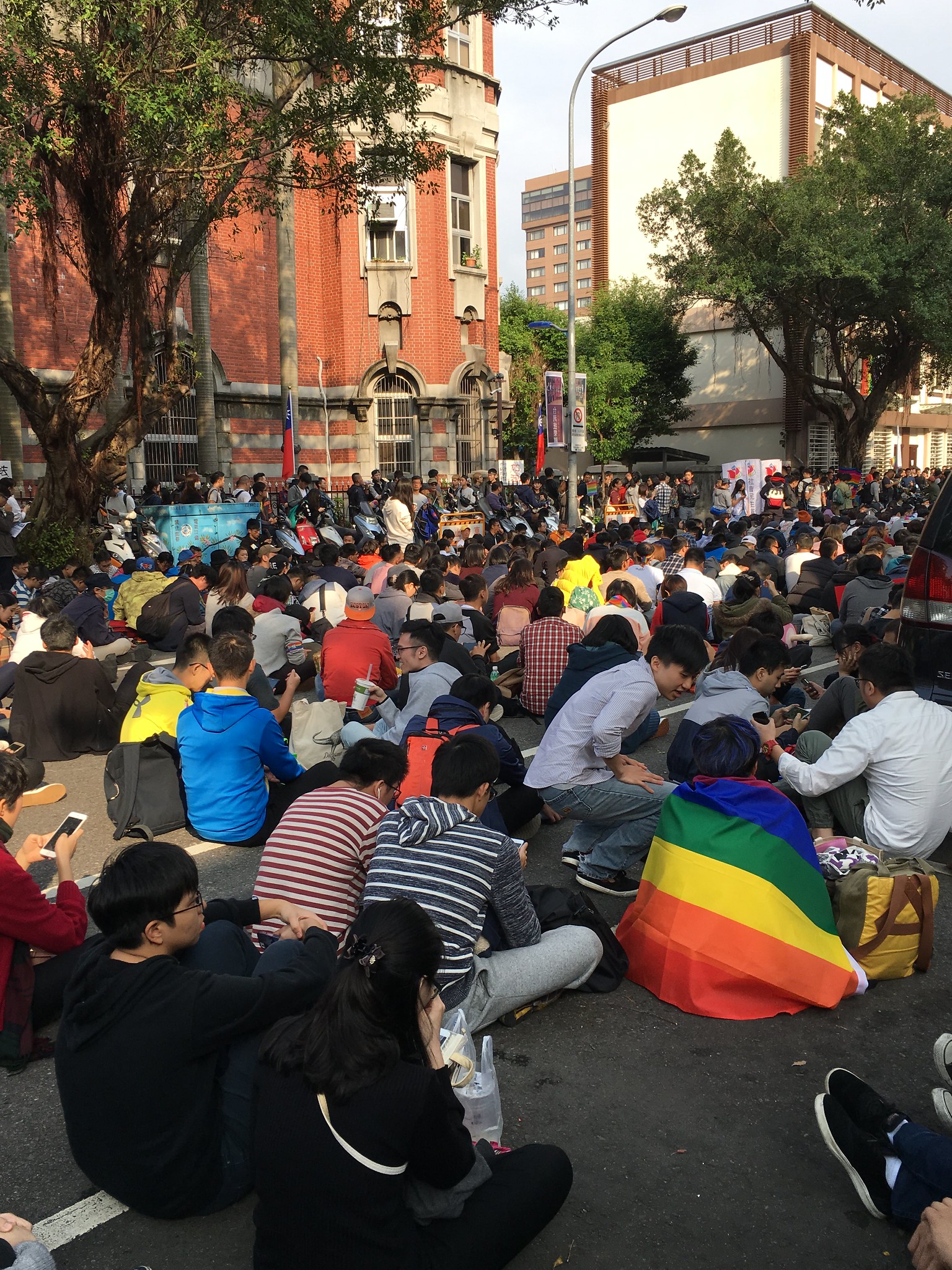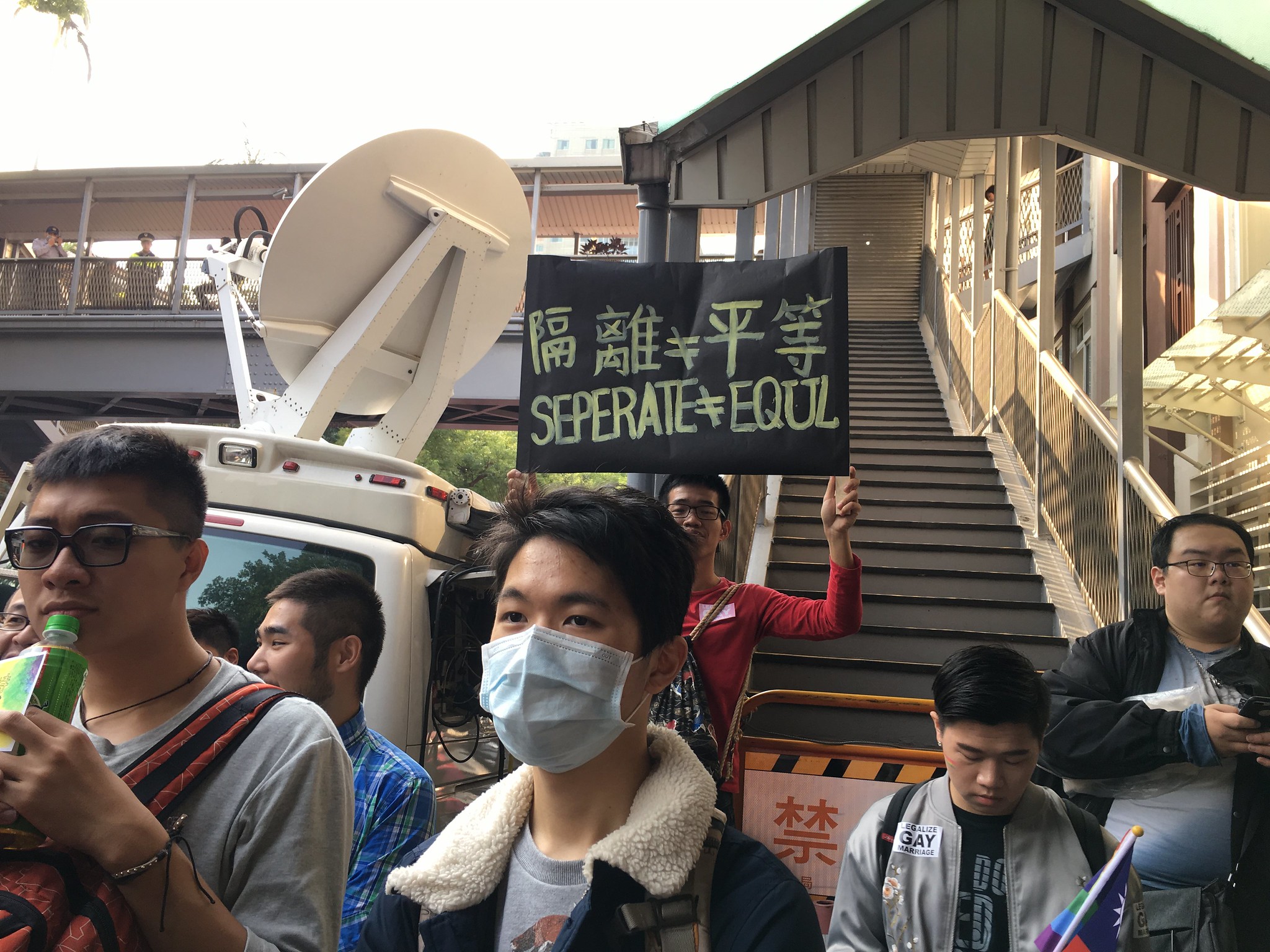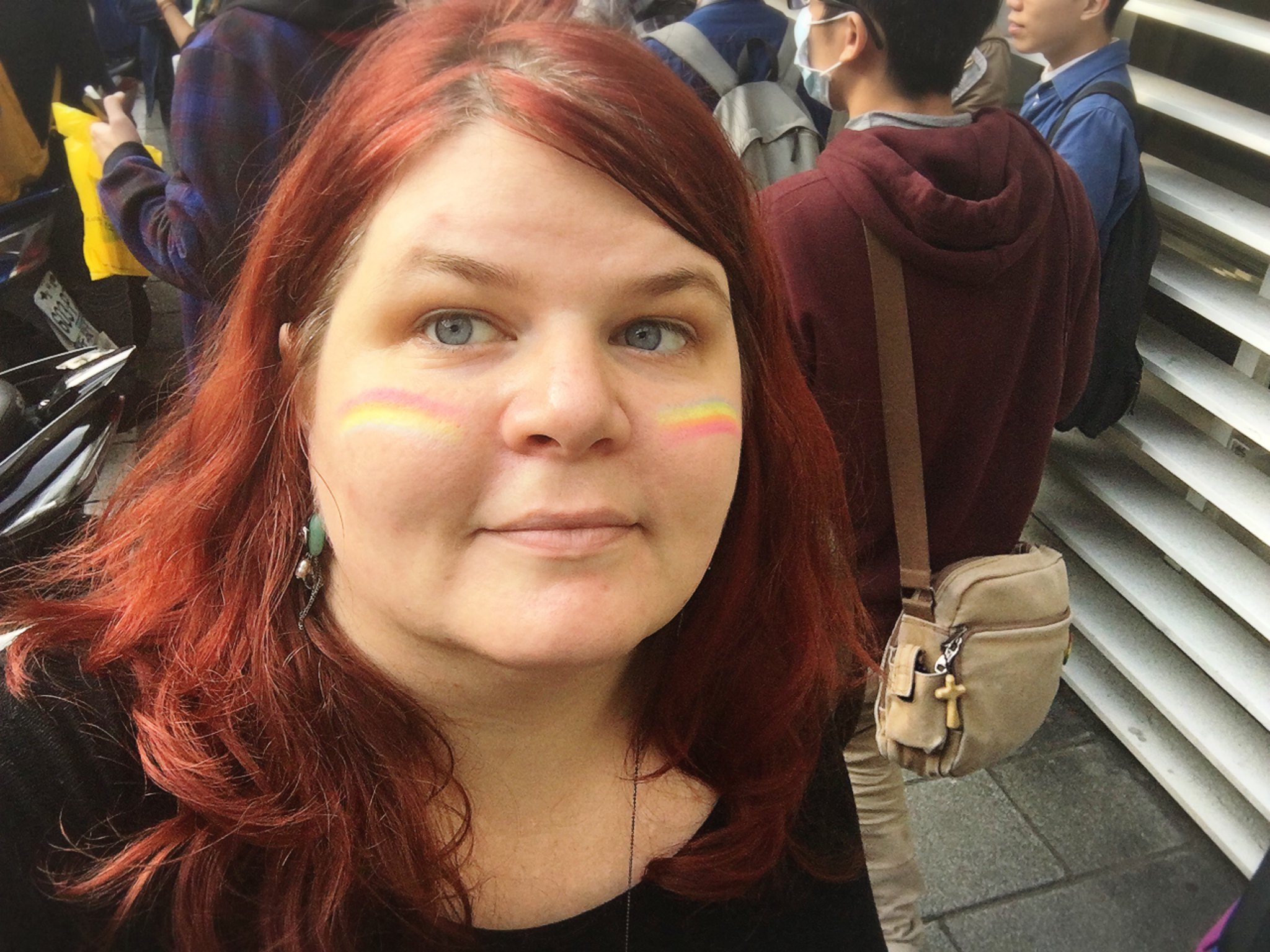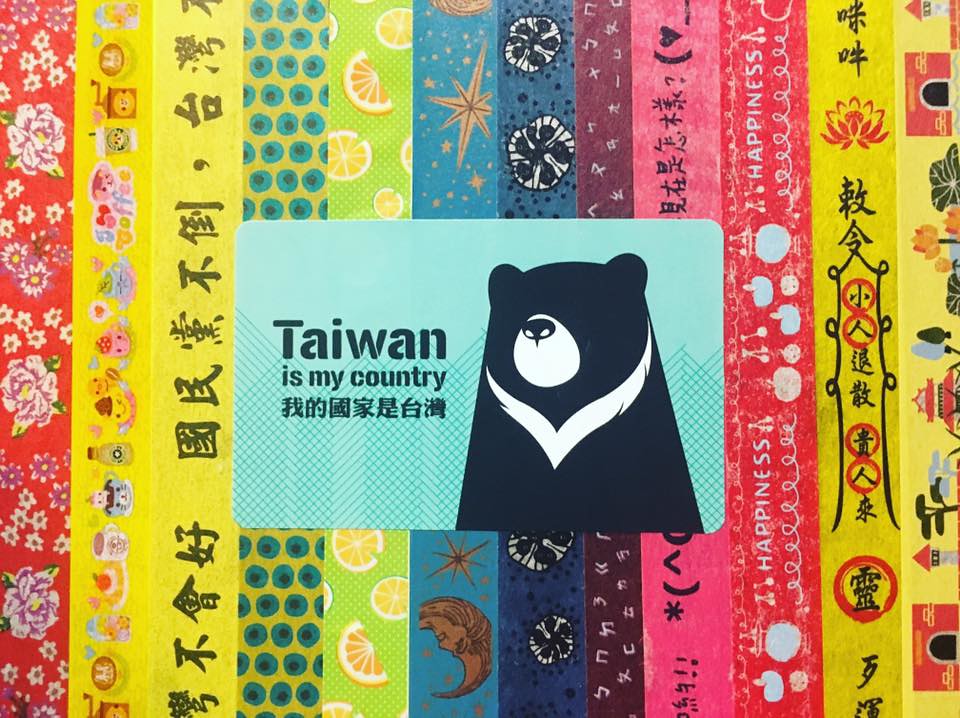
Last December, around 10,000 pro-LGBT people gathered outside the Legislative Yuan as hearings were held within to discuss proposed marriage equality legislation. I was there just to lend my support, and ran into a friend/former student who was also there in support of the bill. A few weeks later, we met again and were discussing the Sunflower Movement.
"Do you think it succeeded?" I asked.
"Actually not really," he replied.
"Why do you think so?" I continued.
He said that only one of the four demands of the Sunflowers was agreed to (the passage of a cross-strait monitoring framework before the CSSTA could be passed, and not even that had actually been implemented, whereas the CSSTA was not quite dead), and although the KMT had been kicked to the curb in the elections earlier that year, that was no guarantee of real change.
This was a good point, but I challenged him:
"It's true that the Sunflower demands were not really met, but I can tell you today's Taiwan is not the Taiwan I moved to in 2006. It's not even the Taiwan I knew in 2013. Something changed because of the Sunflowers, there's been a shift in public discourse and attitudes - it really woke the country up. People care more now than they used to, and their newfound activism is directly linked to being inspired by the Sunflowers. That means something."
"Yeah, but..."
"The other day at the rally, you weren't really out there in the crowd. I was. A lot of people were wearing Fuck The Government t-shirts, or even carrying sunflowers. It was clear that the movement had an effect on them. I don't know if they would have been there if they hadn't been woken up."
"Hmm," was all he said in reply.
* * *
On the heels of a record-breaking Taipei Pride parade (123,000 people were said to have attended this year, up from last year's estimated 80,000), Ketagalan Media - an organization I occasionally write for - published a strong backgrounder on the history and development of LGBT rights and marriage equality movements in Taiwan. They were right to link the relative success of equality movements here to Taiwanese civic activism in general, and a need or urge to differentiate Taiwan from China, a point which isn't made often enough.
However, although I think it makes some good points and covers some important angles, especially for those who may not be intimately familiar with the history of Taiwanese identity, I actually think that the piece inaccurately portrayed the causality of the issue.
Despite my story above, I would not say that the LGBT acceptance and marriage equality movements were offshoots of general civic activism in Taiwan. I don't see it entirely as a direct result of, say, the Sunflowers.
Rather, I would say that Taiwan has always had a more openminded or progressive bent than much of the rest of the continent, with a long historical tradition of civic activism and fighting for human rights. The Sunflowers did not come out of nowhere: they were a continuation of the same cultural traits that brought about the Qing-era rebellions, revolts and home-rule movements under the Japanese and the fight against dictatorship in the 20th century which was composed of several social movements.
As I see it, this rich history was borne of a culture perhaps not quite as beholden to Confucianism as the writer implies. That’s not to say Taiwanese culture is not influenced by Confucian thought: of course it is, to some extent. But remember how Taiwanese society came to be. There are Austronesian cultural roots in which Confucianism has no place, and in which women enjoyed higher status than in much of China (the role of women in Confucianism is, frankly, tragically unsuited to modern society). Added to that, immigrants from China first enticed to come to Taiwan by the Dutch and then, under the Qing, of their own volition (despite this being illegal for a good portion of Qing rule of Taiwan). What person happy with their role in society picks up their life to move to a wild, jungle-covered island, whether at the behest of a bunch of pasty foreign Red Hairs or simply because they want to, even when they are technically not allowed? How traditionally Confucian could the thinking of such a person be, leaving their family home and going against the edicts of their emperor, where Chinese women were not allowed (for some time) and where indigenous women held a higher status in local society than the women they were leaving behind?
That is to say, these early immigrants were often rebels, drifters, weirdos, adventurers, opportunists, riffraff (I would imagine there were more than a few petty criminals among them), pirates or simply people down on their luck.
This is not a criticism. This is praise. This is the foundation of a society that fights back, thinks for itself and is willing to stand up for what it wants. This is not a society of blind obedience, regardless of what notions you might have about ‘Asian cultures’. Give me these guys any day over people who do what they are told and in turn exert control over their wives and descendants. Perhaps it means Taiwan did not develop as peacefully as it could have, but peace is overrated if it doesn't come with justice.
To me, just living among the descendants of these people as well as the indigenous Taiwanese, I have come to understand that Confucianism plays a role in Taiwanese society but is not the key driver that people often assume it is (perhaps because they are predisposed to thinking that all East Asian societies live and die by that philosophy without thinking more deeply about it). In my experience, Daoism (the “everybody just chill” / “you do you” of ancient philosophies) as well as a healthy dose of just being people seeking the best possible life for themselves without worrying too much about the philosophical underpinnings of social order hold just as much, if not more, influence.
If anything, the Confucianism that does exist in Taiwan is arguably more tied to the relatively recent arrival and decades-long control of Taiwan by the KMT, a party very much bathed in the Confucian tradition and the main driver behind the Republic of China, which espouses a very Confucian-style government.
This interpretation of Taiwan’s cultural origins lends itself to a society more predisposed to accepting others as they are, at least outside of their family (within a family things get more complicated), and predisposed to rebelliousness (in a good way - not just accepting the government they are given but fighting actively for the government they want).
What I’m trying to say here is that If any Asian culture was going to be at the forefront of marriage equality and LGBT acceptance, it was going to be Taiwan. And if any Asian culture was going to be so civically engaged and fiercely defensive of a vibrant democracy that they themselves fought for and built, again, it was going to be Taiwan.
Both political activist/Taiwanese identity movements and the LGBT rights movement stem from this. One did not grow from the other: they sprang from the same origin. The success of LGBT acceptance and marriage equality activism in Taiwan - as compared to the rest of Asia - are because of something inherent to Taiwanese culture that is not typically associated with 'Asian cultures' (whether these stereotypical ideas of such cultures are fair or not - and I'd argue mostly not). Other activist movements are too, but they are more like twin siblings.
As I see it, this rich history was borne of a culture perhaps not quite as beholden to Confucianism as the writer implies. That’s not to say Taiwanese culture is not influenced by Confucian thought: of course it is, to some extent. But remember how Taiwanese society came to be. There are Austronesian cultural roots in which Confucianism has no place, and in which women enjoyed higher status than in much of China (the role of women in Confucianism is, frankly, tragically unsuited to modern society). Added to that, immigrants from China first enticed to come to Taiwan by the Dutch and then, under the Qing, of their own volition (despite this being illegal for a good portion of Qing rule of Taiwan). What person happy with their role in society picks up their life to move to a wild, jungle-covered island, whether at the behest of a bunch of pasty foreign Red Hairs or simply because they want to, even when they are technically not allowed? How traditionally Confucian could the thinking of such a person be, leaving their family home and going against the edicts of their emperor, where Chinese women were not allowed (for some time) and where indigenous women held a higher status in local society than the women they were leaving behind?
That is to say, these early immigrants were often rebels, drifters, weirdos, adventurers, opportunists, riffraff (I would imagine there were more than a few petty criminals among them), pirates or simply people down on their luck.
This is not a criticism. This is praise. This is the foundation of a society that fights back, thinks for itself and is willing to stand up for what it wants. This is not a society of blind obedience, regardless of what notions you might have about ‘Asian cultures’. Give me these guys any day over people who do what they are told and in turn exert control over their wives and descendants. Perhaps it means Taiwan did not develop as peacefully as it could have, but peace is overrated if it doesn't come with justice.
To me, just living among the descendants of these people as well as the indigenous Taiwanese, I have come to understand that Confucianism plays a role in Taiwanese society but is not the key driver that people often assume it is (perhaps because they are predisposed to thinking that all East Asian societies live and die by that philosophy without thinking more deeply about it). In my experience, Daoism (the “everybody just chill” / “you do you” of ancient philosophies) as well as a healthy dose of just being people seeking the best possible life for themselves without worrying too much about the philosophical underpinnings of social order hold just as much, if not more, influence.
If anything, the Confucianism that does exist in Taiwan is arguably more tied to the relatively recent arrival and decades-long control of Taiwan by the KMT, a party very much bathed in the Confucian tradition and the main driver behind the Republic of China, which espouses a very Confucian-style government.
This interpretation of Taiwan’s cultural origins lends itself to a society more predisposed to accepting others as they are, at least outside of their family (within a family things get more complicated), and predisposed to rebelliousness (in a good way - not just accepting the government they are given but fighting actively for the government they want).
What I’m trying to say here is that If any Asian culture was going to be at the forefront of marriage equality and LGBT acceptance, it was going to be Taiwan. And if any Asian culture was going to be so civically engaged and fiercely defensive of a vibrant democracy that they themselves fought for and built, again, it was going to be Taiwan.
Both political activist/Taiwanese identity movements and the LGBT rights movement stem from this. One did not grow from the other: they sprang from the same origin. The success of LGBT acceptance and marriage equality activism in Taiwan - as compared to the rest of Asia - are because of something inherent to Taiwanese culture that is not typically associated with 'Asian cultures' (whether these stereotypical ideas of such cultures are fair or not - and I'd argue mostly not). Other activist movements are too, but they are more like twin siblings.
That's not to say that civic activism in Taiwan hasn't influenced LGBT activism. As I pointed out to my friend, the Sunflowers were the catalyst of an awakening in Taiwan. Without that awakening the number of people actively fighting for marriage equality would likely be lower. The LGBT rights movement here has support from many straight, cisgender allies (myself included). This would still be the case even if the Sunflower Movement had never happened, but it’s unlikely that the crowds would be quite the same size. But, the movement would certainly still exist, just as it had done before 2014.
There are also ways that the Taiwanese identity movement and the LGBT acceptance and marriage equality movements diverge. Taiwanese identity is especially strong in rural Taiwan and the south, where support of the LGBT movement still struggles for support. This is a part of why, while the traditionally pro-independence DPP supports marriage equality somewhat more than the more traditionally China-oriented KMT, their support is not universal and is at times lukewarm: while there is a correlation, being pro-Taiwan does not automatically translate into being pro-marriage equality or accepting LGBT people for who they are (and yet tends to support social movements). And while the KMT tends to be more oriented towards a vision of Taiwan that is ultimately Chinese, with traditionally Chinese cultural roots that include Confucianism, and as a result less open to both social movements and LGBT acceptance, you will find supporters of marriage equality in their ranks.
That said, I do agree that in the modern Taiwanese identity movement, building a better country for its own sake, rather than defining Taiwan in terms of how it is not a part of China, is a key factor. A modern, international Asian nation in which everybody is accepted for who they are, ethnicity is not the key driver of what makes Taiwan unique, and everybody has equal rights (including LGBT people) is a part of that identity and, among the youth especially, is inextricable from it. To some extent, they do feed off each other. However, this feeding seems to be to be a mutual energy exchange, not of one "propelling" the other.
So, in the end, while there are a lot of good things to say about this article in terms of the background information on the history of Taiwanese identity and LGBT rights movements, and I agree with quite a bit of it, there are some areas where I feel it either gives too much credence to certain views of social order (i.e. Confucianism) and others where it assumes a causation that I’m not sure is entirely merited - inferring a parent/child-style relationship to Taiwanese identity and LGBT rights where I think a “two siblings” metaphor is more apt.
There are also ways that the Taiwanese identity movement and the LGBT acceptance and marriage equality movements diverge. Taiwanese identity is especially strong in rural Taiwan and the south, where support of the LGBT movement still struggles for support. This is a part of why, while the traditionally pro-independence DPP supports marriage equality somewhat more than the more traditionally China-oriented KMT, their support is not universal and is at times lukewarm: while there is a correlation, being pro-Taiwan does not automatically translate into being pro-marriage equality or accepting LGBT people for who they are (and yet tends to support social movements). And while the KMT tends to be more oriented towards a vision of Taiwan that is ultimately Chinese, with traditionally Chinese cultural roots that include Confucianism, and as a result less open to both social movements and LGBT acceptance, you will find supporters of marriage equality in their ranks.
That said, I do agree that in the modern Taiwanese identity movement, building a better country for its own sake, rather than defining Taiwan in terms of how it is not a part of China, is a key factor. A modern, international Asian nation in which everybody is accepted for who they are, ethnicity is not the key driver of what makes Taiwan unique, and everybody has equal rights (including LGBT people) is a part of that identity and, among the youth especially, is inextricable from it. To some extent, they do feed off each other. However, this feeding seems to be to be a mutual energy exchange, not of one "propelling" the other.
So, in the end, while there are a lot of good things to say about this article in terms of the background information on the history of Taiwanese identity and LGBT rights movements, and I agree with quite a bit of it, there are some areas where I feel it either gives too much credence to certain views of social order (i.e. Confucianism) and others where it assumes a causation that I’m not sure is entirely merited - inferring a parent/child-style relationship to Taiwanese identity and LGBT rights where I think a “two siblings” metaphor is more apt.

